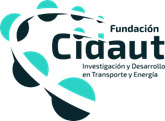

CIDAUT Foundation is a private non-profit institution committed to strengthening the industrial fabric in the transport and energy sectors through specific research and development programs.
Role in ESTELLA: In addition to the effective coordination of the ESTELLA project, CIDAUT will be responsible for the design and optimisation of the composite manufacturing processes based on the materials developed, as well as the manufacture and validation of the final prototypes (scooter platform and window frame).

National Institute of Chemistry is an institute dedicated to basic and applied research oriented towards materials research, biotechnology, chemical engineering, structural and theoretical chemistry, analytical chemistry and environmental protection.
Role in ESTELLA: NIC will obtain an epoxy biomatrix from biomass and with CAN that improves its recyclability.

ICSO is a research and development centre working in the field of organic chemistry and technology, modification and processing of renewable raw materials, polymers an, environmental protection and waste management.
Role in ESTELLA: In this project, ICSO in in charge of the odification of a commercial fossil epoxy matrix by the addition of CAN via esterification.

Wageningen Food & Biobased Research develops insights and technologies that support companies, governments and other research institutes in creating innovative solutions for a healthier, more sustainable and prosperous world. Our in-depth knowledge of the entire chain, from raw materials through processing to end product, drives our approach.
Role in ESTELLA: Design, synthesis and development of bio-based monomers and recyclable resin thermosets containing active Diels-Alder functional groups.

CELABOR is SME offering scientific and technical support to companies in the field of agrifood (nutrition and extraction), environment and bio-sourced materials (packaging and textiles).
Role in ESTELLA: CELABOR will develop the functionalized discontinuous fibre from biomass to ensure adhesion with the resin.

Wood K Plus is a leading research institute in the area wood and wood-related renewable resources in Europe. Materials research and process technology along the complete value chain–from raw material to finished products.
Role in ESTELLA: WK+ is mainly involved in the development of continuous natural fiber reinforcement and surface modification via chemical and physical treatment to improve interfacial adhesion.

Andaltec is a private non-profit entity with research capacities and large experience in the plastic sector (automotive industry and more specifically, lighting systems, as well as recyclability and food packaging).
Role in ESTELLA: In this project, Andaltec will evaluate the chemical recyclability of the developed matrices and composites.

IDENER is a group of research entities with expertise in the development of biotechnological processes and in the application of computational tools to improve them, including machine learning, process modelling and assessment and optimization tools. The team of IDENER has also experience in the coordination of projects and the leading of dissemination and communication activities in them.
Role in ESTELLA: IDENER is the project’s communication manager. The company is also involved in the development of the biological recycling process based on enzymes and in the scale-up activities.

Feyecon is a process and product development company and global leader in CO₂ technology. Feyecon strives to achieve a clean and sustainable planet by combining research and development with a market driven approach.
Role in ESTELLA: In this project, Feyecon evaluate the chemical recyclability using sCO2 on the developed matrices and composites.

European Composite Recycling Technology is a SME representing an innovative part of the creative chain from inception to recycling concerning the use of composite materials.
Role in ESTELLA: ECRT will lead the scale-up of the most promising recycling technique and conduct the LCA.

Fraunhofer Institute for System and Innovation Research is one of the leading innovation research organisations in Europe with broad expertise based on the synergy of the technical, economic and social science knowledge. The institute focuses particularly on the investigation of the scientific, economic, ecological, social, organizational, legal and political framework conditions for generating innovations and their implications.
Role in ESTELLA: Analysis of emerging market opportunities and trends; techno-economic impact assessment of recyclable composites; analysis of the economic feasibility of the production and recycling/end-of-use processes; assessment of environmental and social impact of potential products.

ULE is a University, which is the third national biotechnological pole (human and animal pharma) with huge experience in industrial microbiology productive processes (antibiotics, immunosuppressants, steroids,…).
Role in ESTELLA: ULE is focussed in the microbial isolation and characterization of epoxy degraders.

SINTEF is an independent non-profit research organization, one of the largest in Northern Europe. SINTEF performs contract research and development for a wide range of industry customers and participates as a research partner in a multitude of publicly funded research projects, at the national and European levels.
SINTEF specializes in i.a., biotechnology, analytical chemistry, materials, and nanotechnology.
Role: SINTEF is responsible for generating an inventory of additives used in epoxy resin and composites, the discovery and isolation of enzymes and microorganisms that can take part in biodegradation and recycling of the novel composite materials, as well as toxicology analytics and risk assessment.

